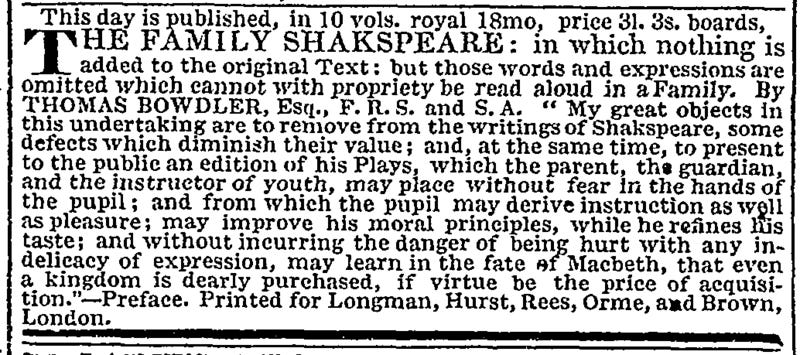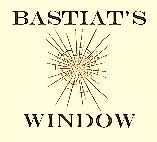
Bowdlerize: (ˈbaʊd.lər.ʌɪz/) Verb, transitive. “To expurgate (a book or writing), by omitting or modifying words or passages considered indelicate or offensive; to castrate.” [Oxford English Dictionary (OED)]
The folks at Puffin Books have unsheathed their gelding shears and are cheerfully neutering the literary output of Roald Dahl. They are removing whatever words, passages, and characters offend the bluenoses at “Inclusive Minds”—a self-described “collective” of those “committed to changing the face of children's books.” Puffin apparently saw the above definition and reimagined it as a business plan. The problem with the OED definition is that Thomas Bowdler is a dead male European, and so, unfortunately, the word “to bowdlerize” exhibits a shocking lack of diversity. It’s time for a more inclusive term: “to puffinize.”
puffinize (UK: usually puffinise, Puffinise)
—puf·fin·ize (ˈpʌf.ɪn.aɪz)
—puffinized; puffinizingtransitive verb: To expurgate, emasculate, or lobotomize a literary work in response to a sense of profound terror that somewhere, sometime, someone might find pleasure in reading a masterfully crafted piece of literature.
related word
puffinism
—puf·fin·i·sm (ˈpʌf.ɪn.ɪ.zəm)noun: An ascetic cult whose central doctrine holds that all works of literature should sound as if they were written by ChatGPT.
For 116 years, Bowdler, an English physician, has been a global joke for publishing The Family Shakespeare (1807 and 1818), which expurgated “those words and expressions … which cannot with propriety be read aloud in a family.” The impetus behind his censoriousness was the frail aesthetic sensibilities of his sister, Henrietta Maria Bowdler. Right around the time that fainting couches were invented, poor Henrietta made a practice of falling onto said fitments whenever the slings and arrows of outrageous phraseology tormented her fragile ears.
Bowdler shuffled off his mortal coil in 1825, but a year later, his scissor-bearing digits lurched up from the grave with one final offering—a similarly expurgated version of Edward Gibbon’s The History of the Decline and Fall of the Roman Empire. Apparently, Bowdler was a visionary who foresaw the invention of television and imagined that Rome’s limitless depravities and self-destructive machinations would make an excellent Hallmark Christmas special. The expurgated Gibbon was shephered along by Bowdler’s nephew and biographer, Thomas Bowdler the Younger. And thus did the English language gain the word “bowdlerize” (or, “bowdlerise” to the good doctor’s friends, yeomen, and countrymen). Bowdler has been almost universally seen as an idiot, an imbecile, a bonehead, a muttonhead, a simpleton, a ninny, a dunce, a nincompoop, and a twit ever since. Puffin Books is likely the first institution in two centuries to see him as a role model.
Dahl’s intentionally, stunningly wicked prose focused on creating horrible characters who said horrible things. In the classic film version of Matilda, the ingenuous protagonist’s father, the vile Harry Wormwood, is played by Danny DeVito. No doubt, Puffin will soon use deepfake technology to replace DeVito with Mr. Rogers. In that film, Wormwood asks his precocious daughter, “Read? Why would you want to read when you got the television set sitting right in front of you?” Thanks to Puffin Books, Wormwood’s question at long last begins to make sense.
At the Spectator (UK), Brendan O’Neill calls the bowdlerization of Dahl “cultural vandalism.” O’Neill does an inventory of some of the changes:
Augustus Gloop in Charlie and the Chocolate Factory is no longer ‘fat’ – he’s ‘enormous.’ …
Aunt Sponge in James and the Giant Peach is no longer ‘terrifically fat’ and ‘tremendously flabby’ – she’s just ‘a nasty old brute’ who deserves to be ‘squashed by fruit.’
Mrs. Twit in The Twits isn’t ‘ugly and beastly’ anymore, just ‘beastly’.
The beloved Oompa-Loompas are no longer ‘tiny’, ‘titchy’ and ‘no higher than my knee’ – they’re just ‘small.’
And they’re not ‘small men’ anymore, they’re ‘small people.’
‘Boys and girls’ are now ‘children’.
The Cloud-Men in James and the Giant Peach are Cloud-People.
Fantastic Mr. Fox’s three sons are now his three daughters.
Matilda no longer reads Rudyard Kipling – that imperial old brute! – but Jane Austen.
One of Dahl’s witches who posed as ‘a cashier in a supermarket’ is now a ‘top scientist.’
Characters no longer turn ‘white with fear’ and the Big Friendly Giant no longer wears a ‘black cloak.’”
Curious that Inclusive Minds and Puffin Books force Matilda to abandon the stereotypically masculine Rudyard Kipling for the stereotypically feminine Jane Austen. A bit like saying, “Put down that model airplane and go play with your dolls, like you’re supposed to,” isn’t it? Of course, the landed gentry society of which Austen wrote was highly diverse, equitable, and inclusive, so there’s that.
At the Daily Mail, Alastair Lockhart and Dolly Busby note that:
The words “crazy” and “mad” are now banished.
In Matilda, Miss Trunchbull’s “great horsey face” is now simply “her face.”
Hayden Vernon at the Guardian wrote: “Puffin has hired sensitivity readers to rewrite chunks of the author’s text to make sure the books “can continue to be enjoyed by all today.” (I assume that “all” no longer includes “people with even a modicum of literary taste.”) Vernon says, “Hundreds of changes were made to the original text—and some passages not written by Dahl have been added,” but notes that the Roald Dahl Story Company said, “it’s not unusual to review the language” during a new print run and any changes were “small and carefully considered.” He notes that:
References to “female” characters have disappeared.
The couplet, “Aunt Spiker was thin as a wire / And dry as a bone, only drier,” has become, “Aunt Spiker was much of the same / And deserves half of the blame.”
In that passage, Dahl’s vivid imagery itself has been replaced by lifeless prose as dry as a bone, only drier. Apparently, no one at Puffin Books was ever taught that writers ought to “show, rather than tell.” And in the rewriting, the jaunty poetic meter of the second line blows a tire, staggers across the road, and careens into a ditch.
Vernon quotes Alexandra Strick, a co-founder of Inclusive Minds, as saying that they:
“aim to ensure authentic representation, by working closely with the book world and with those who have lived experience of any facet of diversity”.
Curiously, there is no variety of English in which Strick’s comment has any discernible meaning whatseover.
As awful as Thomas Bowdler was, he had one great virtue over Puffin Books—nonexclusivity. If you didn’t want Bowdler’s New Coke version of Shakespeare, you were more than welcome to purchase the Coke Classic version, with all the nasty bits intact. Presumably, the vandalized version of Dahl will be the only variety available on the market, save for used copies on eBay or Amazon.
One final question: Will Puffin be sneaking into your Kindle at night at replacing the version you bought with their New and Censored version? I honestly don’t know the answer to that one, but I have strong suspicions.
Lagniappe
Glorious, Blessed Cultural Appropriation
Around the start of the 20th century, the Austrian-American violinist and composer, Fritz Kreisler (born Jewish, but baptized at 12), wrote “Tambourin Chinois”—a Western interpretation of Chinese musical forms. In this one-minute clip, Yiwen Lu, borrows Kreisler’s Westernized piece and performs it on the erhu, sometimes referred to as the Chinese violin. (She is one of China’s most renowned erhu players.) The result is a marvel to watch and to hear:






Dr. Graboyes, I enjoyed your class in the MSHA program at Virginia Commonwealth University back in 2013. I always found you to be a strong counterpoint to the prevailing thought of the thoroughly progressive academic culture. I'm ashamed to say that I was unaware of your prolific work outside of the classroom. I would like to encourage you to keep it up and never stop speaking truth. Thank you.
Thanks for introducing me to the er....erhu.